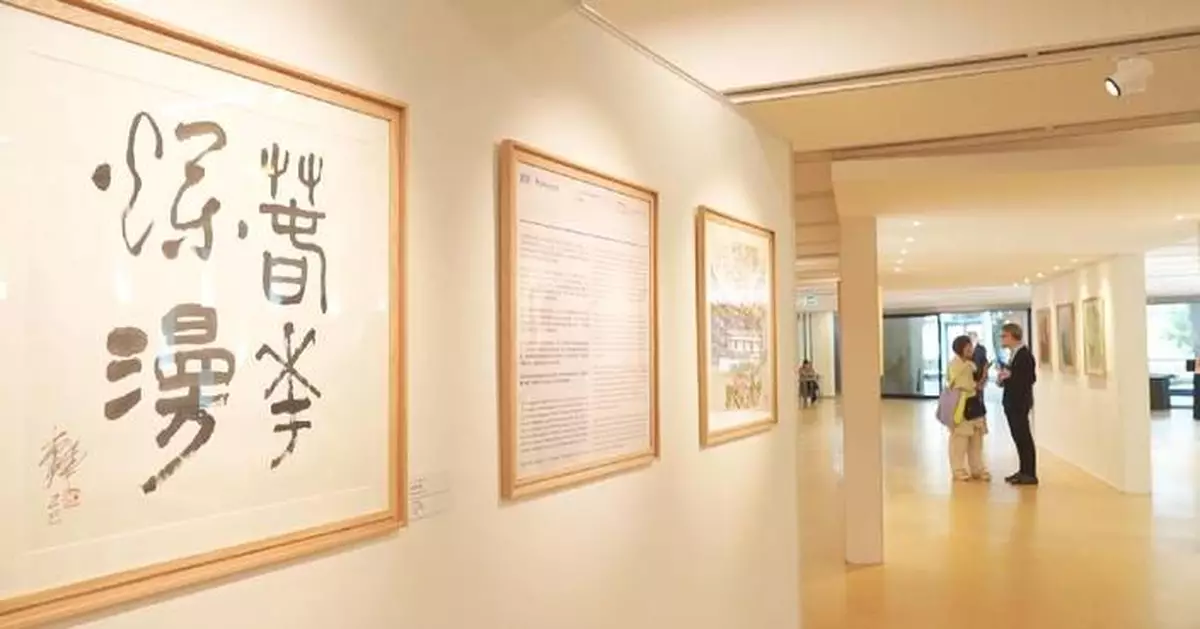A themed exhibition was held on Thursday at the UNESCO headquarters in Paris to celebrate the 2025 UN Chinese Language Day, showcasing the artistry and aesthetic quality of Chinese characters.
Focusing on the fusion of expressive Chinese art and the aesthetics of Chinese calligraphy, the event, themed "The Art of Freehand Brushwork and the Beauty of Chinese Characters" was held to present the unique charm of Chinese culture to a global audience.
"This event is designed to highlight how Chinese characters nourish the aesthetic expressions of Chinese artists through calligraphy and painting, highlighting the beauty of Chinese characters," said Yang Xinyu, Ambassador and Permanent Delegate of China to UNESCO.
Esteemed guests highlighted the importance of language in preserving cultural legacies and forming new connections.
"In an era where technology grows very fast, we need to remember and respect our heritage. And as I said, your language and our language [are] the strongest symbols of cultural heritage. Not only for our two nations, but for the world as a whole," said Georgios Koumoutsakos, Permanent Delegate of Greece to UNESCO.
A special feature of the event was the "Spring in Bloom" themed calligraphy and painting exhibition. Centered on traditional Chinese calligraphy and ink painting, the display merged the pictographic feature of Chinese characters with the expressive aesthetics of freehand brushwork.
"Chinese traditional arts and Chinese characters are derived from the same origin. Chinese characters are one of a kind in the world, which combine phonograms and pictograms in their creation. Many of the characters evolved from pictures, which embody them a beautiful composition," said Guo Yicong, a renowned artist and professor at the Central Academy of Fine Arts, who contributed his work as a part of the exhibition.
Phonograms refer to symbols that carry information about a word's pronunciation, while pictograms represent a concept visually. Uniquely, Chinese characters uniquely make use of both.
Language Days at the United Nations were set up to celebrate multilingualism and cultural diversity, and the Chinese Language Day falls on April 20. As China's global presence continues to grow, UN Chinese Language Day is increasingly seen as a vital platform for fostering intercultural communication and deepening international understanding.
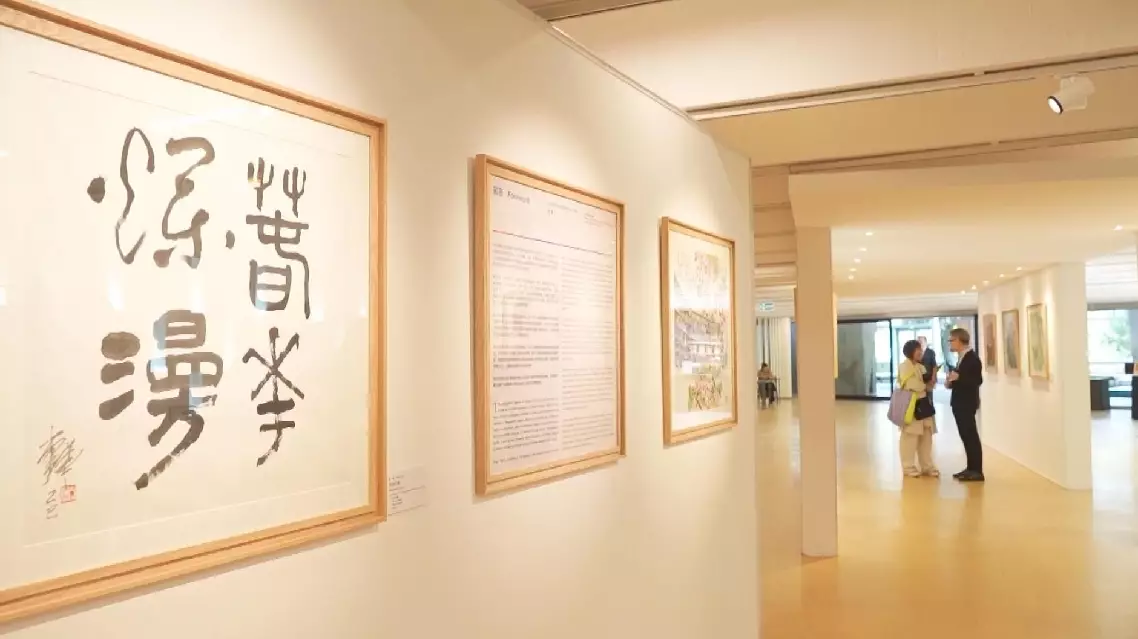
Exhibition held at UNESCO headquarters to celebrate Chinese Language Day
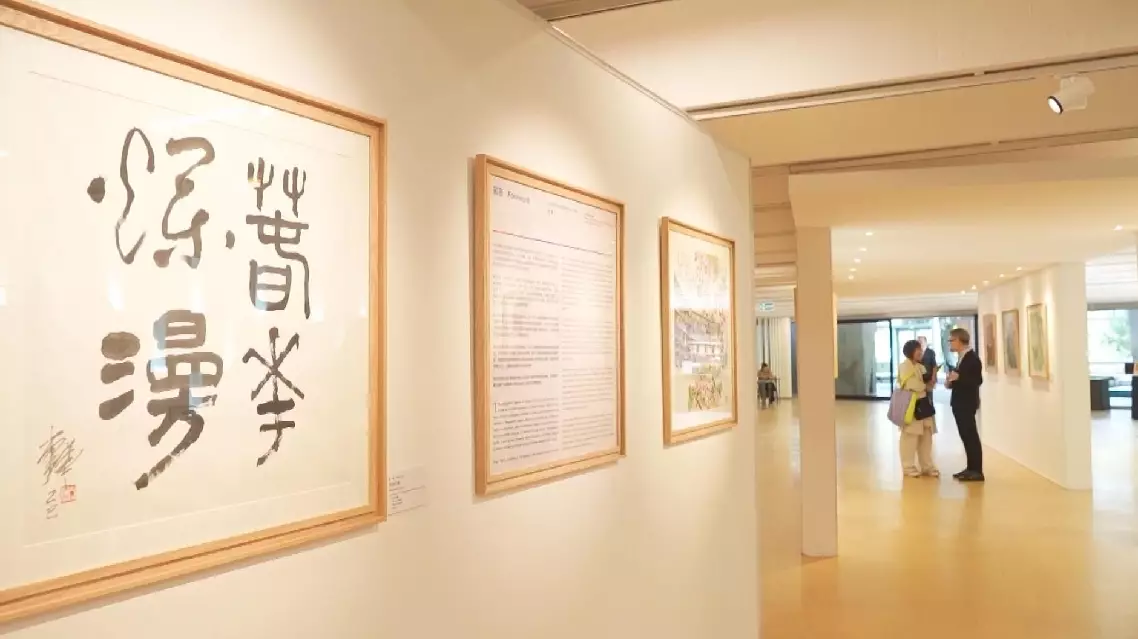
Exhibition held at UNESCO headquarters to celebrate Chinese Language Day
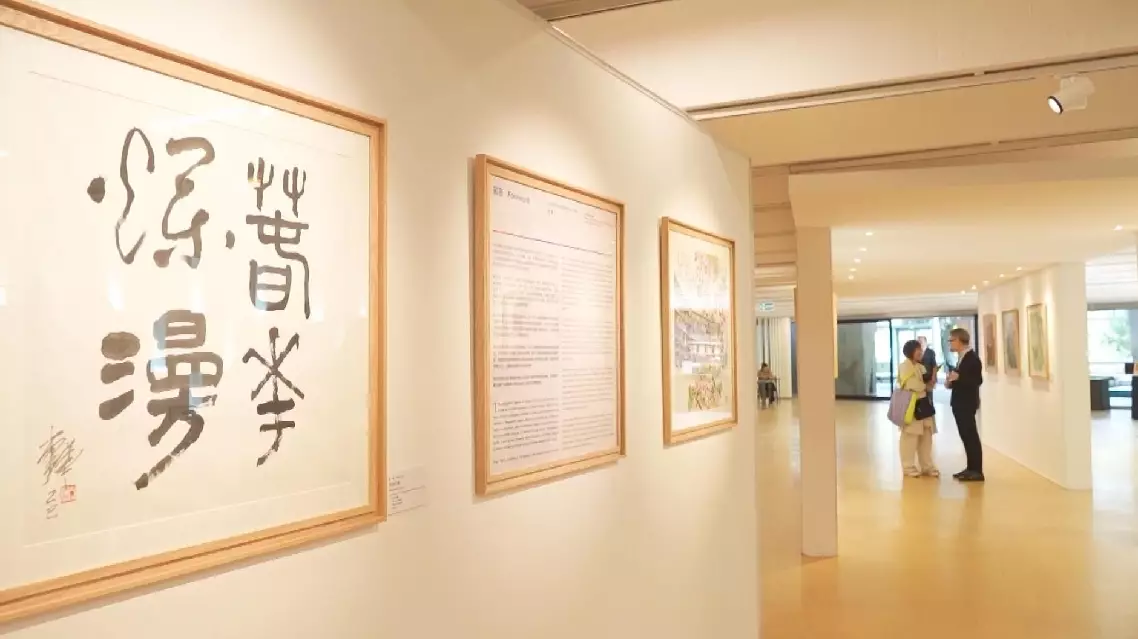
Exhibition held at UNESCO headquarters to celebrate Chinese Language Day
With dramyin lute and cymbals in hand and dressed in colorful traditional costume, 17-year-old Tenzin Norbu is among the proud youngsters in southwest China's Xizang Autonomous Region who have been helping preserve the centuries-old Tibetan opera, a multifaceted representative of Tibetan art and cultural heritage. Considered a living fossil of Tibetan culture, Tibetan opera is a comprehensive art combining folk songs, dance, storytelling, chant, acrobatics and religious performance. It was included on the UNESCO Representative List of the Intangible Cultural Heritage of Humanity in 2009.
Tenzin grew up listening to Tibetan opera along with his grandmother. The beat of the drum marked the rhythm of his childhood and quietly planted the seed of a dream.
The teenager leads a youth Tibetan opera troupe and guides his peers onto the very stage they once only dreamed of. He named it "Phudor Youth Tibetan Opera Troupe", because "Phudor" means "dream" in the Tibetan language.
"There are about 24 members in the troupe," said the teenager.
Tenzin once received a very special invitation to perform Tibetan opera for the opening ceremony of an art festival in Lhasa.
Although both their parents and teachers felt it's important for the children to be exposed to traditional culture from a young age, they didn't want it to affect their schoolwork.
The performance they were getting ready for was the first Sweet Tea House Art Festival, the troupe's very first public appearance. It's a rare opportunity for the children -- one too precious for them to pass up. But with their parents growing anxious about preparation for the performance eating into valuable study time, the children opted to rehearse in secret at weekends. Tenzin's family runs a tailor's shop. His father, who is hearing- and speech-impaired, is a superb tailor, while his mother helps him out by dealing with customers. Tenzin enjoyed Tibetan opera with his grandmother during childhood and later learned more about it from his uncle.
"Whenever I'm not feeling good, I'll take out the dramyin lute and the cymbals. When I hear the drumbeat, I get a feeling of elation that's simply indescribable," he said.
When Tenzin finally stepped onto the stage at the festival, he noticed that his parents were not in the audience. "My parents didn't have time to come to see my performance. But they always support me. They work hard every day, also for my sake. So, I'm happy whether they were here or not as long as I can keep performing Tibetan opera," said the youngster, believing that his passion for Tibetan opera will last a lifetime.
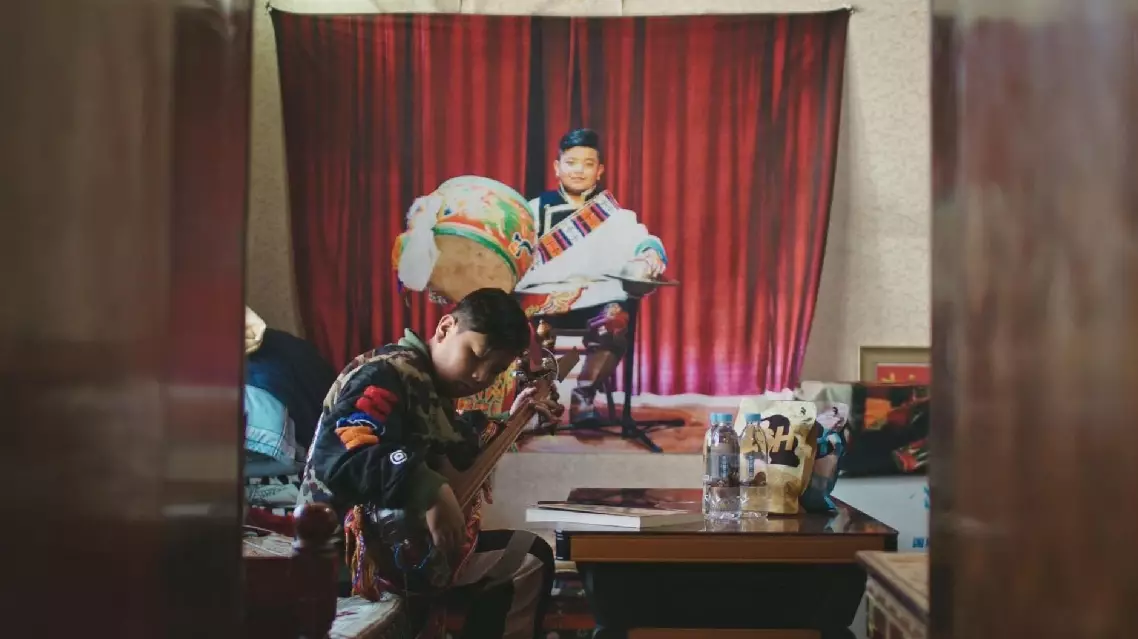
Childhood dream takes local boy onto Tibetan opera stage





